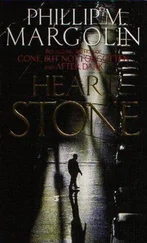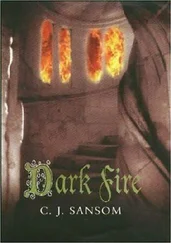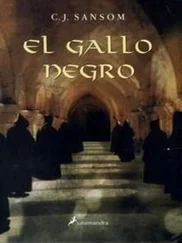I hesitated, for I did not like to use the Queen's name too readily. But I nodded.
'As for Barak, make sure he doesn't get into any more trouble. I'll send a message as soon as I have news.'
'Thank you.'
Carver lowered his voice. 'I saw you looking on at the muster on Tuesday. To be honest I felt a fool sitting on that horse. This war—all because the King wants to hold Boulogne, which has no value.'
I nodded in agreement. 'Indeed. Do what you can, sir. Please.' I turned away, nodding to Goodryke. He barely acknowledged me.
* * *
I WALKED the short distance to Fall Lane. It was off Basinghall Street. London Wall and the high towers of the Moorgate were visible at a little distance. The houses were prosperous looking, with fine windows of mullioned glass and beautifully carved doorposts, backing onto the wide gardens of Drapers' Hall. A merchant's wife walked past, accompanied by two armed servants, a cloth vizard covering her face.
A small old church stood at the top of the lane. I saw the pointed steeple with its gleaming weathercock was new; this was a wealthy parish. Barak sat on the wall by the lych gate, looking pensive. He stood as I approached. 'The verger says Vicar Broughton will be along shortly,' he told me, then added, 'what news?'
I told him of my encounter with Goodryke. His face fell when he realized the matter was not resolved. 'Tammy will have my guts.'
'Alderman Carver will do what he can. He's on our side. The Common Council is weary of the King's endless calls for them to raise more men. But they haven't forgotten what happened to Alderman Read.'
Barak laughed bitterly. 'I should think they haven't.'
Read's defiance had been the talk of London in January. The King had requested a Benevolence from the tax-paying classes, a 'voluntary' tax to add to all the others he had levied for the war. Read alone had refused, and for his pains had found himself conscripted into the army and serving with Lord Hertford's forces on the Scottish border. He had been captured shortly after, and was now a prisoner of the Scots.
'Has the Common Council no power left?' Barak asked, kicking at a stone. 'Londoners used to walk in fear of the aldermen.'
I sat beside him on the wall, squinting in the sun. 'And they walk in fear of the King. And this Goodryke is acting in his name. But Carver will go higher up the chain of command.'
Barak was silent for a moment, then burst out, 'Jesus, how did we get to this? There was peace with France for twenty years till this started.'
'Perhaps the King sees keeping Boulogne as his last chance for glory. And he had his alliance with Emperor Charles last year.'
'Right worthless that proved. The Emperor made his own peace and now we face France alone.'
I looked at him. 'If they succeed in invading us they won't be kind. Nor will their Scots allies. And from what the Queen said, invasion is coming.'
'I won't leave Tamasin now.' He clenched his fists hard. 'They'll have to drag me away.'
I rose hastily as a man in a white cassock approached. Elderly, stooping, with a long grey beard. I nudged Barak. 'Quick, get up.' We bowed to the clergyman. His expression was serious, but his brown eyes looked kind. 'Master Shardlake?'
'Yes, sir. Master Broughton? This is my assistant, Barak.'
'It is about the Curteys family?'
'Indeed.'
'So,' he said, 'at last someone has come.'
* * *
HE LED US into the church. The interior was bare, empty niches where statues of saints had once stood, stools set out for the congregation with copies of the King's compulsory new primer laid out on them. Broughton bade us sit, lowering himself onto a stool facing us. 'You are a lawyer, sir, I see. Do you represent Hugh Curteys? He was the only one of that poor family left.'
'No. Hugh still lives with Master Hobbey, down in Hampshire. I have not met him. But a complaint against Master Hobbey's conduct of his wardship has been laid by his old tutor, Michael Calfhill.'
Broughton smiled. 'I remember Michael well. An honest young gentleman.'
'Did he visit you recently?' I asked.
Broughton shook his head. 'I have not seen Michael in six years.' That was a blow; I had hoped Michael had come here more recently. 'How fares he?' the vicar asked.
I took a deep breath. 'Michael Calfhill died three weeks ago. I am sorry.'
The vicar closed his eyes for a moment. 'May his soul be received in Heaven, by Jesus's grace.'
'Shortly before he died, Michael laid a Bill of Information before the Court of Wards, alleging that some monstrous injustice had been committed against Hugh Curteys. According to his mother he had recently been in Hampshire and had visited him.'
'God help us,' Broughton said. 'What did he find?'
'His Information does not say. But there is a hearing on Monday. I am going to represent his mother. I need witnesses who know about this wardship, sir. Urgently.'
Broughton collected his thoughts, then looked at me directly. 'I knew that wardship was tainted. John and Ruth Curteys were my parishioners for years. When reform of the Church came they supported me in breaking with the old ways. They were stalwarts. I saw their children born, christened them, saw the family prosper. And then I buried John and Ruth.' His face twitched with emotion.
'Did they have any other family?'
Broughton clasped his hands on his lap. 'They came to London from Lancaster. Like many young folk John came here to seek his fortune. In time their parents died. When the plague took John and Ruth there was only an old aunt of Ruth's left in the north that she spoke of sometimes and wrote to. Michael came to me, concerned by Master Hobbey's interest in the children's wardship—I suggested he look for letters from her, and I would write to her. Sir,' he burst out suddenly, 'how did Michael die?'
I answered gently, 'The verdict was suicide. What he found in Hampshire may have disturbed the balance of his mind.'
'Oh, dear God.' Broughton put his head in his hands.
'I am sorry, sir. But please, tell me what you can about the wardship. What of the aunt?'
'Michael brought her address. By that time, he said, Nicholas Hobbey was already taking away papers and books of account. Michael argued with him, but Hobbey brushed him aside—Michael had no status.'
'It sounds as though you knew Michael well.'
Broughton sighed and shook his head. 'Michael came to church with the family every Sunday. But no, I never felt I knew him. Nor that he fully trusted me. I wondered if he was a secret papist, but I do not think so. Something troubled him though. But he loved those two children and did all he could to help them. We became—' he smiled—'conspirators, for the children's welfare.'
'Michael's mother said Hugh and Emma Curteys were close.'
'Yes. Serious, godly children.' He shook his head, his long beard trembling. 'I wrote to the aunt, paid for a fast messenger. It was already three weeks then after John and Ruth's death. Michael and I suspected Hobbey was after control of the children's lands, but not that it could be done so fast.'
'Usually it can't.'
'I waited every day for a reply from the north, but you know how long it takes to get messages from those wild places. Two weeks passed, then three. Michael visited me again, saying Hobbey was always at the Curteys house. And his lawyer too.'
'Vincent Dyrick.'
'Yes, that was the name. Michael said the children were afraid. He implored me to go and see Hobbey. So I did, I went to his house up at Shoe Lane.' Broughton frowned. 'He received me in his parlour, looked at me with the haughty arrogance of a man who worships Mammon, not God. I told him I had written to the aunt. Well, Master Hobbey only asked coldly how an old woman was going to drag herself two hundred miles and care for two growing children. He said he was the family's best friend and their neighbour in Hampshire, he would see justice done for Hugh and Emma. And then his wife came in. Abigail Hobbey.' There was anger in Broughton's face now.
Читать дальше












